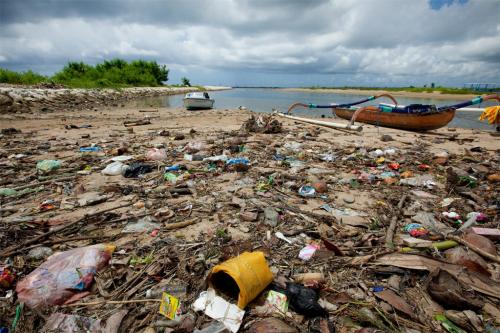‘Make human rights the priority in all conservation efforts’ – UN experts urge governments
Ahead of the world’s largest forum for the adoption of conservation policies on protected areas, two United Nations experts on environment and indigenous peoples highlighted that effective and sustainable conservation requires respect for human rights on Aug 29.

Marine litter affects communities and seas in every region of the world, and negatively impacts biodiversity, fisheries and coastal economies.
“The escalating incidence of killings of environmentalists, among them many indigenous leaders, underlines the urgency that conservationists and indigenous peoples join forces to protect land and biodiversity from external threats, notably lucrative resource exploitation,” the UN Special Rapporteurs on human rights and the environment, John H. Knox, and on the rights of indigenous peoples, Victoria Tauli-Corpuz, said in a news release issued by the Office of the UN High Commissioner for Human Rights (OHCHR).
Organised every four years by the International Union for Conservation of Nature (IUCN), the World Conservation Congress (WCC) brings together heads of States, high-level government officials, business leaders, representatives from indigenous groups and leading civil society organisations along with scientists and academics. This year’s WCC takes place from 1-10 September in the US state of Hawaii – both UN experts will attend with the aim of advocating a human rights-based approach to conservation and biodiversity.
“Protection of biodiversity is a human rights issue as a healthy ecosystem is important for the full enjoyment of a wide range of human rights,” Mr. Knox said. “The loss of biological diversity has negative impacts on a wide range of human rights including the rights to life, food, housing, health, water and sanitation and culture. At the same time, the exercise of human rights, including rights to information, participation, and remedy, can provide useful tools for the effective protection of biodiversity.”
At the WCC, Ms. Tauli-Corpuz will present her just-released 2016 report to the UN General Assembly, in which she explores how conservation affects indigenous people and recommends measures to increase respect for indigenous peoples’ rights.
“The conservation community, through IUCN resolutions, has taken important steps by recognising the rights of indigenous peoples, however practical implementation and advancement of these rights remains sorely lacking,” she said.
“I urge conservation organisations and government agencies to move beyond commitments on paper and ensure that indigenous peoples are actively involved in the management of protected areas and that all conservation measures include continuous monitoring of compliance with indigenous peoples’ rights,” Ms. Tauli-Corpuz added.
The expert recently launched a project on biodiversity and human rights, which will culminate in a report to the Human Rights Council in March 2017.
Special Rapporteurs and independent experts are appointed by the Geneva-based UN Human Rights Council to examine and report back on a specific human rights theme or a country situation. The positions are honorary and the experts are not UN staff, nor are they paid for their work.
Source: United Nations
- 433 reads
Human Rights
Ringing FOWPAL’s Peace Bell for the World:Nobel Peace Prize Laureates’ Visions and Actions

Protecting the World’s Cultural Diversity for a Sustainable Future

The Peace Bell Resonates at the 27th Eurasian Economic Summit

Declaration of World Day of the Power of Hope Endorsed by People in 158 Nations

Puppet Show I International Friendship Day 2020

